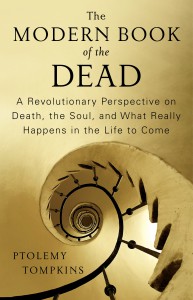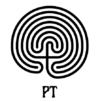The Modern Book of the Dead
 The Beaten Path didn’t get too many reviews, but one place it did get reviewed was in New Age Magazine (now sadly defunct, like so many, many others). The reviewer liked the book well enough, but said something to the effect that I’d done a lot better job of pointing out the shortcomings of the contemporary spiritual landscape than I had of coming up with any real solutions.
The Beaten Path didn’t get too many reviews, but one place it did get reviewed was in New Age Magazine (now sadly defunct, like so many, many others). The reviewer liked the book well enough, but said something to the effect that I’d done a lot better job of pointing out the shortcomings of the contemporary spiritual landscape than I had of coming up with any real solutions.
The reviewer, it had seemed to me back when I had initially seen this review, was right. In England, the book had actually been published under the title I’d initially intended for it, The Book of Answers. The title was meant to be tongue in cheek. After all, who was I to provide any ultimate answers to the question of what life was all about? But the more I thought about it, the more it seemed to me that this whole attitude was something of a cop-out.
So in the back of my mind, I determined that someday, if I had the chance to, I would write a book that was, in tone and content, exactly the opposite of what The Beaten Path was. A book that really was a kind of book of answers, at least to the degree that I could find them.
The Modern Book of the Dead is that book. In it, I try to lay out, in fairly shameless fashion, what I really think the human story is about. Why we live, why we die, and what will become of us when we do the second of those things.
The subtitle of the book contains the adjective “revolutionary,” a fairly obnoxious quality for a book to claim for itself. I put the word in, however, because I believed (and still do) that the story The Modern Book of the Dead tells really is revolutionary. I do not, however, take any credit for this, since the material I assemble in the book has been sitting around for quite a while now, and has even been put together by other people into the same basic shape I put it into. So all in all, and despite that “revolutionary” I threw into the title, I’d say The Modern Book of the Dead is the least original of my efforts.
So why did I write it? One way to answer this question is with a quote from the fascinating (if problematic) Swiss philosopher and metaphysician Frithjof Schuon. Addressing the issue of how repetitive his books tended to be, Schuon once remarked that “the truth can bear repetition.”
I love everything about this statement. First off, there’s Schuon’s boldness in believing that there is such a thing as truth with a capital “T”: a highly unfashionable idea in contemporary philosophical circles, and most specially back in the critical-theory-dominated eighties, when I first discovered Schuon’s books. Then there’s the equally impressive fact that Schuon felt he possessed this Truth. And third, of course, there’s the explicit point the sentence makes: that Schuon could have cared less if people got bored with hearing him say the same thing again and again. He didn’t get bored with repeating it, because Truth can bear endless repetition.
This isn’t to say that I agree with, or for that matter even entirely understand, everything that Schuon, who died in 1998, had to say on matters of truth and of what the universe and human life are really all about. Nor am I unaware of how close this sentence of his strays to the border between likable self-confidence and unlikable, closed-minded arrogance (that latter quality being one that the real-life Schuon sometimes possessed in abundance).
But all the same, the sentence has long stayed with me, and it came to mind one day when I was finishing work on the first draft of The Divine Life of Animals. That day, I came across a mention of a book called The Country Beyond by a woman I’d never heard of before named Jane Sherwood. I looked up the book and discovered that it was out of print. It did, however, have one Amazon customer review, which contained the following encomium:
“The most clear, logical, straightforward account of the afterlife I’ve ever read.”
“Clear,” “logical,” and “straightforward” were not words I associated with accounts of the afterlife, modern or ancient. In fact, in the course of writing The Divine Life of Animals I’d often despaired at how conflicting, cantankerous, and mind-bogglingly confusing the different afterlife models of the world’s spiritual traditions were. Plenty of people had made black-and-white, Schuon-like statements about the afterlife over the centuries, but the more black-and-white those statements were, the less likable and reliable they tended to sound.
I knew I believed in the afterlife, and that the question of what happens to each of us when our bodies give out is perhaps the single most important question about ourselves that we can ask. But I knew as well that a book that addressed itself to what really happened to the soul at death (if indeed there was any such item as the soul to begin with) was most likely going to be either a) a scholarly work, dealing with what cultures past thought on the matter but not treading into the question of whether any of these views were actually true or not, or b) a book speaking directly and exclusively from one or another religious tradition, or c) a popular modern account, deliriously open-minded about different spiritual and religious perspectives but woefully short on genuinely believable details.
This isn’t to say that all the books on the afterlife I was familiar with fell into one of these categories. But the great majority of them did, and when I ordered a used copy of Sherwood’s book that day, I knew I was most likely wasting my money. I’d leaf through it, find some completely silly statement that put me off the whole thing, and place the book aside.
But when the book arrived and I opened it, something weird happened. The book was extremely clear, and refreshingly free of both doctrinaire, I’m-right-and-you’re-wrong pronouncements, and also free of vague new-age nonsense. After an opening paragraph that struck me as strangely well written, Ms. Sherwood went on to describe her search for evidence that her deceased husband was still alive in a realm beyond the physical. By the time I finished the book, she’d managed – with the help of her deceased husband and two other deceased individuals, one of them, bizarrely enough, T. E. Lawrence — to turn my world upside-down. The book wasn’t just intelligently written. It was extraordinarily intelligently written. Why had I never heard of it before? Why was it out of print, with only one customer review, and floating off in that “current sales rank: 3,397,639” department of the site where ignored books go to die?
Here’s the thing about communication with the dead: it’s real. It really, really is. Personality doesn’t stop at death, and individual human consciousness, if we can manage to open ourselves to the possibility that it might survive physical death in some form — doesn’t revert to some vague, gassy, impersonal “stuff.” We remain, at death, the people we are now, with the difference that we are no longer encumbered by the physical body and brain which we used while alive on earth, and without which things become entirely, well… better.
I became convinced of all this in the process of researching and writing The Modern Book of the Dead. The Country Beyond led me into a whole world of books on communication with the Beyond that had been written not in the sixties or seventies but decades (sometimes many decades) earlier. From Sherwood’s book I went on to Robert Crookall’s The Supreme Adventure, Stuart White’s The Unobstructed Universe, Geraldine Cummins’ The Road to Immortality, Raynor C. Johnson’s Nurslings of Immortality… and so on. A universe of (almost entirely out of print) authors who decisively filled the gaps that I had for so long felt existed between responsible (but uncommitted) scholarly literature, committed but overly doctrinaire traditional religious literature, and modern new age mush.
That isn’t to say that I think all the popular stuff out there right now is mushy. There are a good number of titles on the afterlife based on NDE’s and/or spiritual communication published in the last few decades that I like quite a bit. But it was Jane Sherwood’s book that opened my eyes to a whole body of literature that – as far as I’ve been able to tell – very few people these days know about. It’s a body of literature whose boldness and intelligence is rivaled only by its eerie believability. There is what I can only describe as a texture of intelligence in this material – one that induced, in me at least, moments of what I might call an almost convulsive sense of assent. Yes, I would say to myself, reading a passage from one of these volumes. It’s real, this stuff, it really is.
While the subject of what happens to us after we die is one of such gravity, immensity, and seriousness that it is not always easy to bring to it the energy and intelligence that it demands; while it is easy, in other words, to slip into a state of mind where one loses touch with the certainty that the physical body and the physical world are not all there is, the topic is worthy of every last drop of energy and intelligence we can give to it. Of that I’m sure, and if all this seems silly to many people now, it didn’t a century ago. For evidence of this, read one of the books named above, or read (if you can find it) the essay “Is there a Life After Death?” This article appears in a volume called In After Days, published in 1911, and was written by that notoriously bubble-headed new ager, the novelist Henry James. Though it’s easy to think otherwise if you enter the term “afterlife” into a search window, the world is more than well supplied with extremely intelligent books written by extremely intelligent individuals on the subject of personal survival. If you doubt me (and really, why shouldn’t you?) give one of the above-mentioned titles a shot. They really are worth your time.
